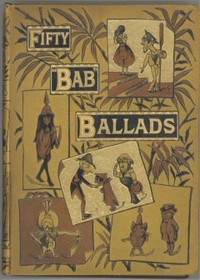249 Results with the "Poetry" genre
Adventure Fiction (1164)
Biography (435)
Business & Finance (1)
Children's Literature (124)
Comics (6)
Culture (51)
Drama (123)
Dystopian (29)
Fable (86)
Fantasy (1132)
Fantasy (203)
Fiction (1010)
Finance (1)
Gothic Fiction (12)
Historical Fiction (615)
History (122)
Horror (56)
Lifestyle (36)
Literary (404)
Literary Fiction (207)
Memoir (113)
Mystery (422)
Non-fiction (87)
Novel (549)
Paranormal Fiction (96)
Philosophical (182)
Philosophy (45)
Political Fiction (14)
Politics (42)
Practical (32)
Psychological (4)
Psychological Thriller (108)
Relationship (6)
Romance Novel (716)
Romantic Melodrama (14)
Satire (91)
Science (46)
Science Fiction (345)
Self-help (68)
Society (65)
Society (2)
Spiritual Growth (1)
story (2)
Thriller (704)
True Crime (56)
view (11)
Women's Fiction (2)
Young Adult (233)
-
Story
The Bhagavad-Gita
 The Bhagavad-Gita, a revered scripture in Hindu philosophy, is a spiritual dialogue between Prince Arjuna and Lord Krishna, set on the battlefield of Kurukshetra. Through this profound discourse, Krishna imparts timeless wisdom on duty, righteousness, selflessness, and the paths to spiritual liberation, blending philosophy, ethics, and devotion into a guide for living a meaningful life.
The Bhagavad-Gita, a revered scripture in Hindu philosophy, is a spiritual dialogue between Prince Arjuna and Lord Krishna, set on the battlefield of Kurukshetra. Through this profound discourse, Krishna imparts timeless wisdom on duty, righteousness, selflessness, and the paths to spiritual liberation, blending philosophy, ethics, and devotion into a guide for living a meaningful life.-
4.7 K • Nov 8, '24
-
4.5 K • Nov 8, '24
-
4.0 K • Nov 8, '24
-
-
Chapter
Signs
 Signs of Christmas begin long before the date arrives, not with decorations or carols, but in how children start to act. Suddenly, the same hands that once resisted chores now tidy shoes and fold blankets without being asked. Whispers of Santa’s watchful eyes transform everyday defiance into obedience, as if the holiday has cast a gentle spell over the house. Parents notice this shift not in grand gestures, but in small acts of kindness and cooperation. Children become generous with smiles and quick to…
Signs of Christmas begin long before the date arrives, not with decorations or carols, but in how children start to act. Suddenly, the same hands that once resisted chores now tidy shoes and fold blankets without being asked. Whispers of Santa’s watchful eyes transform everyday defiance into obedience, as if the holiday has cast a gentle spell over the house. Parents notice this shift not in grand gestures, but in small acts of kindness and cooperation. Children become generous with smiles and quick to…-
116.6 K • Ongoing
-
-
Chapter
VERSE: A LITTLE LONGER
 A Little Longer invites reflection through its quiet refrain, suggesting that everything—joy, pain, beauty, sorrow—is held in suspension just for a moment more. The poem walks alongside the reader, not rushing toward an ending but encouraging presence in the now. The world is not static; it is alive with subtle movement—violets bloom, birds call out, soft breezes lift petals, and each sunrise feels like a promise. Yet these gifts, as lovely as they are, are not permanent. They shine briefly,…
A Little Longer invites reflection through its quiet refrain, suggesting that everything—joy, pain, beauty, sorrow—is held in suspension just for a moment more. The poem walks alongside the reader, not rushing toward an ending but encouraging presence in the now. The world is not static; it is alive with subtle movement—violets bloom, birds call out, soft breezes lift petals, and each sunrise feels like a promise. Yet these gifts, as lovely as they are, are not permanent. They shine briefly,…-
95.9 K • Ongoing
-
-
Chapter
Ballad: The Periwinkle Girl
 The Periwinkle Girl charms readers with a blend of humor, irony, and quiet criticism aimed at shallow judgments and social snobbery. The narrator begins by admitting a youthful dismissal of winkles—not for their taste, but because they lacked glamour or entertainment value. Winkles were plain, unfashionable, and didn’t belong in the world of flirtation or cigars, so they were ignored. That notion shifts the moment Mary enters the scene. Selling winkles with grace and beauty, she transforms the ordinary…
The Periwinkle Girl charms readers with a blend of humor, irony, and quiet criticism aimed at shallow judgments and social snobbery. The narrator begins by admitting a youthful dismissal of winkles—not for their taste, but because they lacked glamour or entertainment value. Winkles were plain, unfashionable, and didn’t belong in the world of flirtation or cigars, so they were ignored. That notion shifts the moment Mary enters the scene. Selling winkles with grace and beauty, she transforms the ordinary…-
150.1 K • Ongoing
-
-
Chapter
Ballad: Little Oliver
 Little Oliver spends his days not just in service, but in silent admiration, tucked away beneath the grandeur of Earl Joyce’s estate. Though only a page, his heart is filled with thoughts far too vast for his station. He watches Lady Minnie-Haha move through sunlit halls and across rose-strewn gardens, her presence as melodic as her name implies. His love for her is quiet but unwavering, stitched into the seams of his uniform and the hours he spends polishing silverware that reflects her face. He knows…
Little Oliver spends his days not just in service, but in silent admiration, tucked away beneath the grandeur of Earl Joyce’s estate. Though only a page, his heart is filled with thoughts far too vast for his station. He watches Lady Minnie-Haha move through sunlit halls and across rose-strewn gardens, her presence as melodic as her name implies. His love for her is quiet but unwavering, stitched into the seams of his uniform and the hours he spends polishing silverware that reflects her face. He knows…-
157.3 K • Ongoing
-
-
Story
Ban and Arriere Ban
 Ban and Arrière-Ban by George Meredith is a historical novel set in the medieval period, blending romance, adventure, and intrigue as it follows the lives of knights and noble families. The story explores themes of loyalty, honor, and personal conflict, focusing on the complex relationships between its characters as they navigate societal expectations and the challenges of chivalric duty. The novel's title refers to the medieval French legal terms for summoning all able-bodied men to arms, reflecting the novel's focus on military and familial obligations.
Ban and Arrière-Ban by George Meredith is a historical novel set in the medieval period, blending romance, adventure, and intrigue as it follows the lives of knights and noble families. The story explores themes of loyalty, honor, and personal conflict, focusing on the complex relationships between its characters as they navigate societal expectations and the challenges of chivalric duty. The novel's title refers to the medieval French legal terms for summoning all able-bodied men to arms, reflecting the novel's focus on military and familial obligations.-
4.1 K • Nov 8, '24
-
4.9 K • Nov 8, '24
-
4.0 K • Nov 8, '24
-
-
Chapter
The Hammers
 In this chapter titled The Hammers, the opening scene offers a quiet juxtaposition—an English estate slowly overtaken by time, where roses bloom beside crumbling walls and silence speaks louder than memory. The stillness is not merely rural peace but a kind of hush before the resurgence of national effort. Soon, that quiet is broken by rhythmic pounding—metal on metal, the sound of labor shaping destiny. In Frindsbury, 1786, the shipyards stir with the energy of creation as hammers rise and fall in…
In this chapter titled The Hammers, the opening scene offers a quiet juxtaposition—an English estate slowly overtaken by time, where roses bloom beside crumbling walls and silence speaks louder than memory. The stillness is not merely rural peace but a kind of hush before the resurgence of national effort. Soon, that quiet is broken by rhythmic pounding—metal on metal, the sound of labor shaping destiny. In Frindsbury, 1786, the shipyards stir with the energy of creation as hammers rise and fall in…-
90.3 K • Ongoing
-
-
Chapter
Chapter Eighteen: Roya Shams/Mom
 The chapter opens with the narrator's vivid description of Leila, a woman whose striking presence transcends conventional beauty. Her sunglasses, confident demeanor, and animated conversation about eclectic topics make her magnetic, almost otherworldly. The taxi driver’s distracted driving underscores her allure, while her unfiltered cigarettes and casual defiance of norms—like removing her scarf—hint at her rebellious nature. The narrator is captivated, observing Leila as if she were a force of…
The chapter opens with the narrator's vivid description of Leila, a woman whose striking presence transcends conventional beauty. Her sunglasses, confident demeanor, and animated conversation about eclectic topics make her magnetic, almost otherworldly. The taxi driver’s distracted driving underscores her allure, while her unfiltered cigarettes and casual defiance of norms—like removing her scarf—hint at her rebellious nature. The narrator is captivated, observing Leila as if she were a force of…-
74.6 K • Ongoing
-
-
Chapter
Chapter XII — The Bhagavad-Gita
 Chapter XII begins with a profound and timeless inquiry into the nature of divine devotion. Arjuna, driven by genuine spiritual curiosity, seeks clarity from Krishna regarding two paths—worshipping a personal, visible form of God versus meditating upon the formless, unmanifested aspect of the Divine. His question reflects a fundamental dilemma in spiritual practice: whether the tangible or intangible is more effective in bringing one closer to liberation. This chapter delves into what it truly means to…
Chapter XII begins with a profound and timeless inquiry into the nature of divine devotion. Arjuna, driven by genuine spiritual curiosity, seeks clarity from Krishna regarding two paths—worshipping a personal, visible form of God versus meditating upon the formless, unmanifested aspect of the Divine. His question reflects a fundamental dilemma in spiritual practice: whether the tangible or intangible is more effective in bringing one closer to liberation. This chapter delves into what it truly means to…-
79.2 K • Ongoing
-
-
Chapter
Curly Locks
 Curly Locks opens with a gentle gaze upon a child, so young and untouched by the world, nestled in the safety of early innocence. The poem reflects on what, if anything, such a child could understand of pain, hope, or the quiet ache of growing older. There is no worry on that face—no trace of the burdens that life eventually brings. Instead, the child’s smile suggests a soul still basking in a simpler truth, one not yet colored by regret or complexity. The speaker wonders if this child, so full of…
Curly Locks opens with a gentle gaze upon a child, so young and untouched by the world, nestled in the safety of early innocence. The poem reflects on what, if anything, such a child could understand of pain, hope, or the quiet ache of growing older. There is no worry on that face—no trace of the burdens that life eventually brings. Instead, the child’s smile suggests a soul still basking in a simpler truth, one not yet colored by regret or complexity. The speaker wonders if this child, so full of…-
116.6 K • Ongoing
-
- 1 2 … 25 Next
